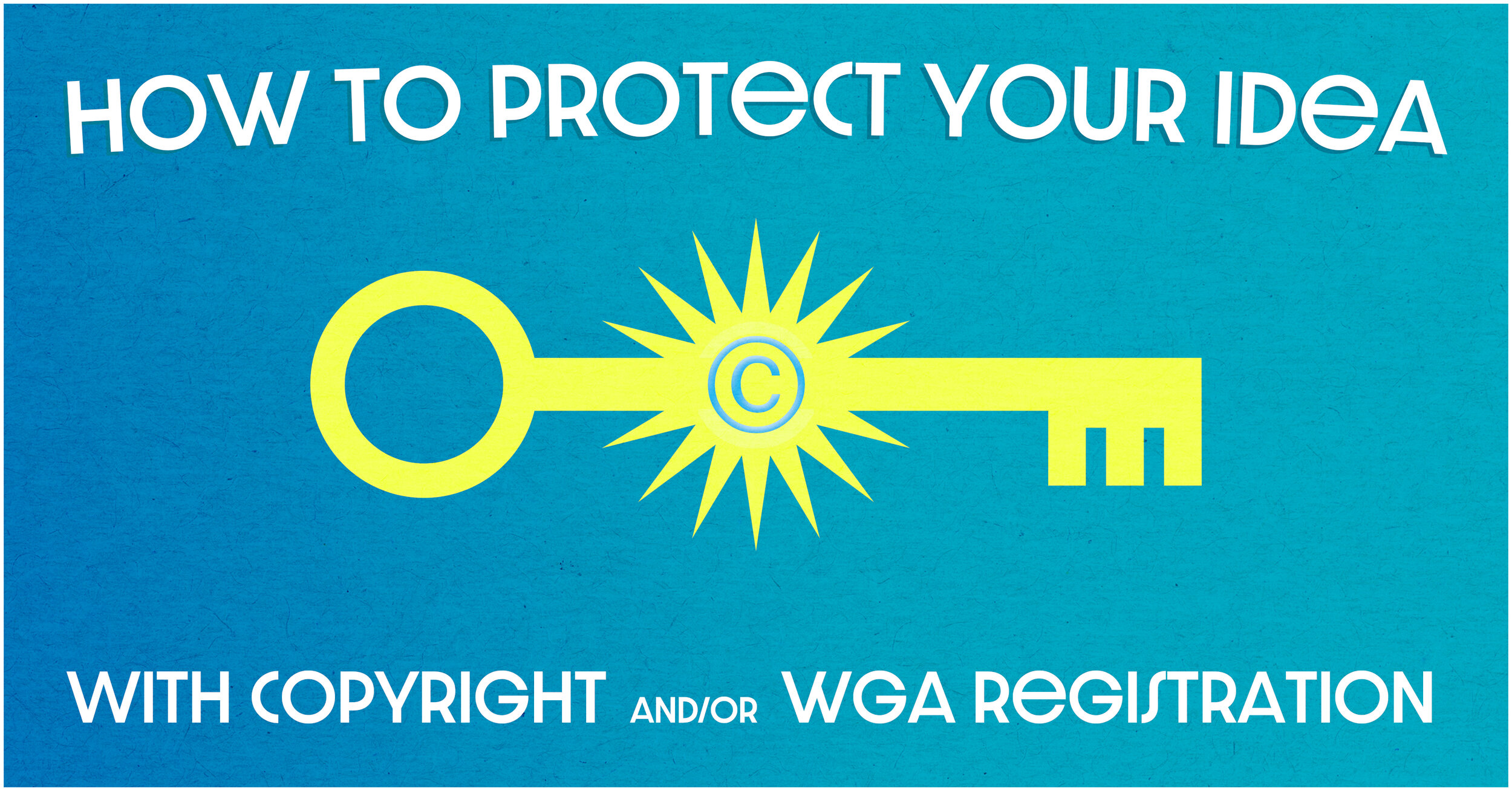How To Protect Your Idea with a Copyright and/or WGA Registration

Hi All,
You did it. You finished a blazing hot screenplay and you’re ready to share it around town. Congrats!
But, before you send your script to possible reps, producers, execs, or contests - how do you ensure no one co-opts your idea? How do you make sure your intellectual property, all that hard work and creativity, is protected? This is one of the biggest concerns of new writers (in fact you can almost always tell a brand new writer when they worry about sending out their material because they’re afraid someone will steal it). It almost never happens. Honestly. But it’s still a good idea to make sure it’s known that this was your idea first, in the very rare instance that it happens.
You can protect your script in two ways: you can register it with the WGA or you can copyright it with the United States Government.
But which should you choose? How is registering your script different from copyrighting it? And how much protection does each option actually have?
Below is some info on copyrighting and WGA registration to help you figure out which one is the best choice for you and your IP:
What exactly is WGA registration?
Basically WGA registration means telling the WGA the origin date of your idea, script, treatment, synopsis, or outline. That way, if you see someone profiting off of your idea later on, you have proof the origin of the idea was yours. As I said, someone directly profiting off of a registered idea is very rare, but it has happened before.
How do I register with the WGA?
Registration is a simple: you fill out an online form, pay a fee ($20 for non-members, $10 for WGA members), and upload your materials.
How does a WGA registration protect me?
A WGA registration protects your script for five years. What does that “protection” actually mean? It means that if you found yourself in the middle of a lawsuit or a credit arbitration the WGA would send an employee to testify regarding the date of your registration. The WGA is all about protecting writers and registration is a way to provide legal evidence that your ideas belong to you.
Here’s how the WGA explains it on their website:
"When you register your script prior to submitting it to contests, agents, managers, or producers, you document your authorship on a given date should there be unauthorized usage. Registration provides a dated record of the writer's claim to authorship of literary material. The WGAW Registry may produce the material as evidence if legal action is initiated.”
So what’s a copyright?
Copyrighting your work is another legal way to protect your completed screenplays (as well as your treatments and outlines) from being stolen or plagiarized. But here’s the catch: you can’t copyright an idea. Which means if you’re out pitching your brilliant series idea about ‘a dystopian world where only women survive’ and someone overhears you - they can take your idea, write it themselves, and there would be no legal obligation to you. But before you panic and never tell anyone your ideas ever again… Remember that ideas are a dime a dozen, and actually turning an idea into a blazing hot screenplay takes a lot of time, effort, and talent. So, when it comes to copyrighting, it’s not about protecting your ideas, it’s about protecting your existing screenplays.
How do I copyright my screenplay?
Copyrighting your screenplay is easy. You complete an online application, pay the fee (about $35 - $55), and submit your screenplay. But before you do this you need to decide whether your script is “unpublished” or “published”. Most screenplays are registered “unpublished”. A script is only considered “published” if you have “offered copies of it for sale or rent.”
Some KEY differences between WGA registration & copyright:
Cost:
WGA registration: $10 - $20
Copyright registration: $35 - $55
Duration of Protection:
WGA registration: Protects you for 5 years and is renewable for additional 5 year terms
Copyright registration: “If author is a natural person: author’s life + 70 years; if author is a corporation, anonymous or pseudonymous, then 95 years from publication or 120 years from creation, whichever is shorter.”
Allows immediate access to court?
WGA registration: No
Copyright registration: Yes
Allows for attorney’s fees if infringed?
WGA registration: No
Copyright registration: Yes, if registered prior to infringement or within 90 days of publication.
Allows for statutory damages if infringed?
WGA registration: No
Copyright registration: Yes, if registered prior to infringement or within 90 days of publication.
Will have employee appear in court to testify about date of submission?
WGA registration: Yes
Copyright registration: No
So, should I register or copyright?
Both copyright protection and WGA registration will give you proof that a project is yours (again, your chances of going to court over a script is really slim, but think of it like insurance: you pay for it hoping you never actually need to use it). So I would say if I really wanted a paper trail of a project, I would probably register my idea with the WGA - it’s fast, easy, and affordable. Then, register my finished script with the WGA as well, or if I was super worried about protection - copyright it. But remember, with screenwriting, it’s almost always more about the execution then the idea, so you may not need all three. But of course, I leave that up to you and what will give you peace of mind.
Which do you think is better, registering or copyrighting your script? Let me know @CaroleKirsch!
